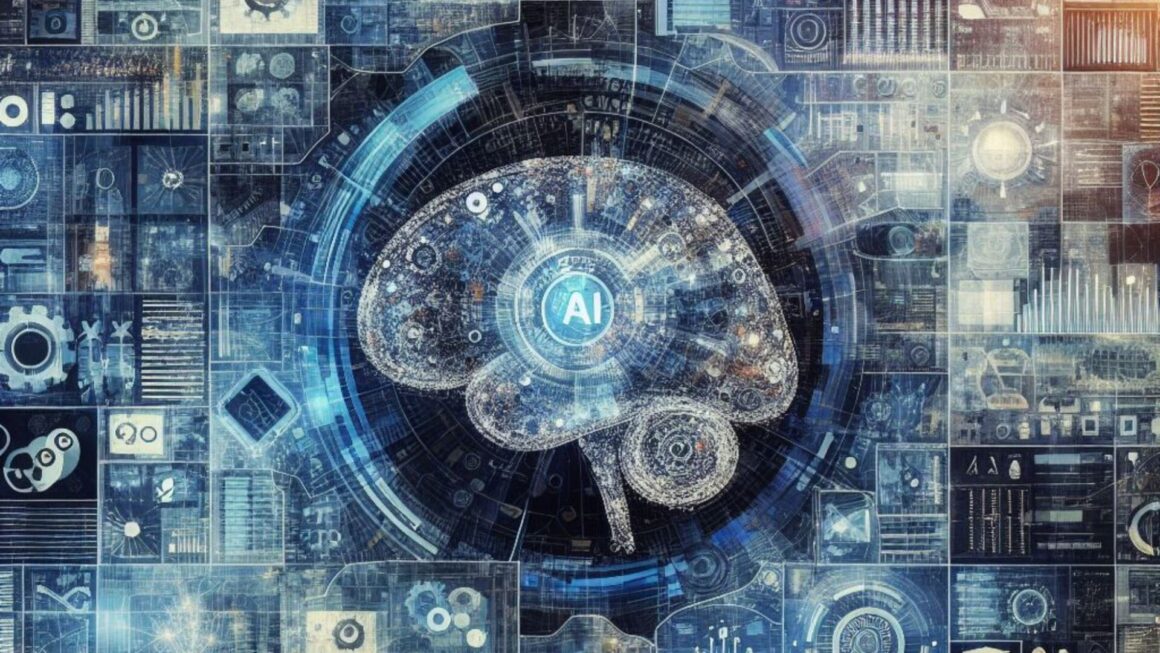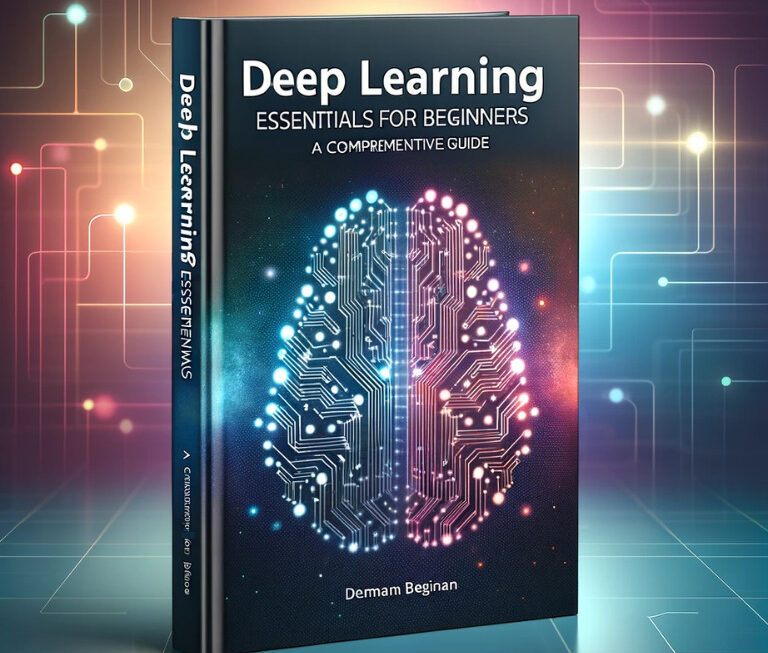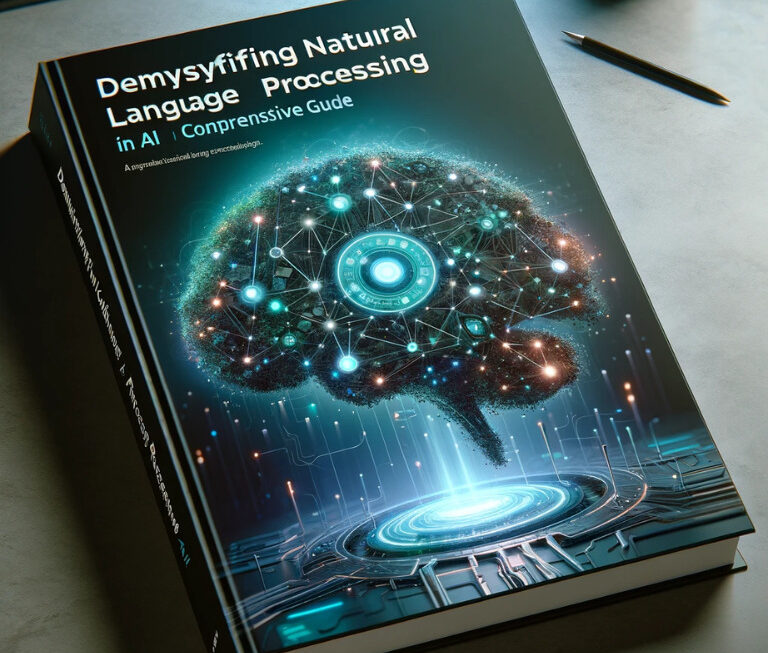The technological landscape is continuously evolving, and at the forefront of this evolution is Artificial Intelligence (AI). AI has permeated various sectors, but its integration into mobile app development is particularly revolutionary. This fusion is not just about making apps smarter; it’s about redefining how developers approach the app creation process and how users interact with their devices.
The Rise of AI in Technology
AI’s journey began as a lofty concept in science fiction, but it has since become a practical tool that drives innovation. From Siri’s voice recognition to Tesla’s autonomous driving features, AI’s capabilities are vast and growing. In the realm of mobile technology, AI is the engine behind predictive text, personalized content recommendations, and even the optimization of battery life.
Overview of AI’s Role in Mobile App Development
In the context of mobile app development, AI is more than just a feature—it’s a foundational element that can streamline development processes, enhance user engagement, and open new avenues for functionality. AI coding, specifically, refers to the use of machine learning algorithms and neural networks to improve and automate the development process.
AI can analyze vast amounts of data to learn user preferences, predict behavior, and make real-time adjustments to the app’s functionality. This level of personalization and adaptability was once a developer’s dream, but AI is making it a tangible reality.
AI’s Multifaceted Impact:
- User Experience (UX): AI algorithms can analyze user interactions to deliver a more personalized UX, adapting interfaces, and content to meet individual preferences.
- Development Efficiency: AI-driven tools can automate repetitive tasks, optimize code, and even detect bugs, allowing developers to focus on more creative aspects of app development.
- Market Insights: By analyzing user data, AI can provide developers with insights into market trends, helping them to make data-driven decisions about app features and marketing strategies.
The Synergy of AI and Mobile Development
The synergy between AI and mobile app development is not just about integrating AI into apps; it’s about using AI to fundamentally change how apps are built and maintained. AI coding tools and frameworks are empowering developers to create apps that are more intuitive, responsive, and engaging than ever before.
As we delve deeper into the specifics of AI coding for mobile app development, we’ll explore the tools that are changing the game, the frameworks that are making AI more accessible, and the techniques that are setting new standards for what mobile apps can achieve.
Understanding AI Coding
Artificial Intelligence coding, or AI coding, shifts the paradigm from traditional programming practices to a model where algorithms learn from data and make decisions. Instead of developers explicitly defining the logic, AI coding enables a program to develop its logic as it learns patterns and behaviours.
What is AI Coding?
AI coding is the process of creating self-improving algorithms that can perform tasks that typically require human intelligence. These tasks include problem-solving, recognizing patterns, understanding natural language, and making decisions. AI coding is at the heart of machine learning (ML), where algorithms use statistical techniques to give computers the ability to “learn” from data.
How AI Coding Differs from Traditional Programming
Traditional programming relies on a set of predefined rules that dictate every outcome. The developer anticipates every possible scenario and writes code accordingly. In contrast, AI coding is designed to adapt and improve over time without human intervention. It uses data-driven approaches where the algorithm’s performance enhances as it processes more data.
Key Differences at a Glance:
| Traditional Programming | AI Coding |
|---|---|
| Rule-based logic | Data-driven learning |
| Static code | Dynamic algorithms |
| Manual updates | Continuous self-improvement |
| Limited to known scenarios | Adapts to new, unforeseen scenarios |
AI coding is transforming mobile app development by enabling apps to offer personalized experiences and adapt to user behavior in real-time. It’s not just about making apps that perform tasks but creating apps that understand and grow with their users.
AI Tools and Frameworks for App Developers
A variety of tools and frameworks have greatly facilitated the integration of AI into mobile app development, simplifying the process. These resources are increasingly making it easier for developers to incorporate sophisticated AI features into their applications.

Popular AI Tools for Mobile Development
AI tools are the building blocks that enable developers to add intelligent features to their apps without needing a background in machine learning or data science. Some of the most popular tools include:
- TensorFlow: Google developed TensorFlow, an open-source library celebrated for its flexibility and ability to build and train ML models.
- PyTorch: Facebook’s AI Research lab developed PyTorch, which is favored for its user-friendly interface and dynamic computational graph capabilities.
- IBM Watson: Known for its powerful NLP capabilities, Watson allows developers to integrate AI functions such as language processing and analysis.
Frameworks that Facilitate AI Integration
Frameworks provide a structure for developers to build upon, offering pre-written code and libraries that make it easier to integrate AI into apps. Some leading frameworks include:
- Keras: A high-level neural networks API running on top of TensorFlow, designed for human beings, not machines, Keras simplifies the creation of deep learning models.
- Core ML: A framework by Apple that allows for the integration of machine learning models into iOS apps, making it straightforward to run ML models on Apple devices.
- Firebase ML Kit: This toolset from Google offers ready-to-use APIs for common mobile use cases like recognizing text, labeling images, and scanning barcodes.
Machine Learning in Mobile Apps
Machine Learning (ML) is a subset of AI that’s particularly impactful in the mobile space. It enables apps to perform complex tasks such as image recognition, speech recognition, and predictive text input by learning from data.
Basics of Machine Learning in Apps
At its core, ML in mobile apps involves training models on large datasets to perform a specific task. For example, a photo app might use an ML model trained on millions of images to recognize and categorize user photos automatically.
Case Studies: ML-driven Mobile Applications
Several successful mobile applications have harnessed the power of ML to enhance user experience:
- Google Photos: Uses ML for image classification and search, making it easier for users to find specific photos by content.
- Snapchat: Employs ML for its facial recognition filters, allowing the app to apply creative and interactive overlays on users’ faces.
- Spotify: Utilizes ML algorithms to personalize music recommendations based on user listening history.
These applications show how ML can create more engaging and personalized user experiences.
Natural Language Processing for Enhanced User Experience
Natural Language Processing (NLP) is another AI technique that’s revolutionizing mobile apps, particularly in how they understand and respond to human language.
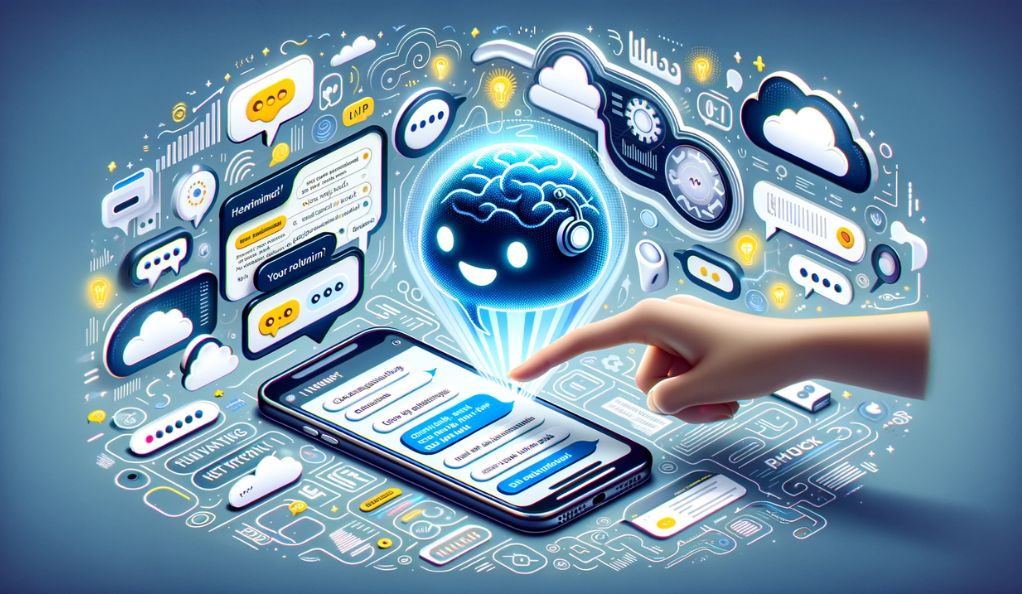
Implementing Chatbots and Virtual Assistants
NLP enables the development of chatbots and virtual assistants that can understand and respond to user queries in a natural way. Apps like Replika use NLP to create conversational agents that can engage users in meaningful dialogue.
Personalization through Language Understanding
By analyzing user input, NLP can tailor responses and content to the individual user. This capability is evident in apps like Grammarly, which uses NLP to offer writing suggestions that are contextually relevant to the user’s writing style and objectives.
Predictive Analytics and User Behavior
Predictive analytics use AI to predict future events based on historical data. In mobile apps, this can translate to predicting user behavior and preferences.
How AI Predicts User Actions
AI models can analyze how users interact with an app and predict what they might do next. For instance, Netflix uses predictive analytics to suggest shows and movies that users are likely to enjoy, based on their viewing history.
Improving App Engagement with Predictive Analytics
By anticipating user needs and preferences, apps can present content or features at just the right time, thereby increasing engagement. This is seen in e-commerce apps like Amazon, which suggests products to users based on their past searches and purchases.
Automated Testing and Quality Assurance
In the realm of mobile app development, ensuring the quality and performance of an application is paramount. AI steps into this space with automated testing and quality assurance, bringing efficiency and precision to a traditionally labor-intensive process.
AI in App Testing and Debugging
AI-driven testing tools can automatically write and execute test cases, learn from the results, and adjust the tests accordingly. This not only speeds up the testing process but also helps in identifying issues that might be missed by manual testing. Tools like Appium and Test.ai are examples where AI assists in automating the testing process for mobile applications.
Ensuring Quality with AI-Driven Test Cases
AI algorithms can analyze user data to identify patterns and predict where bugs are most likely to occur, focusing testing efforts where they are most needed. This proactive approach to quality assurance means that potential issues can be addressed before they affect the user experience.
AI-Driven Customization and Personalization
Customization and personalization are at the heart of modern mobile app experiences. AI takes this to a new level by enabling apps to learn from each interaction and tailor the experience to each user.
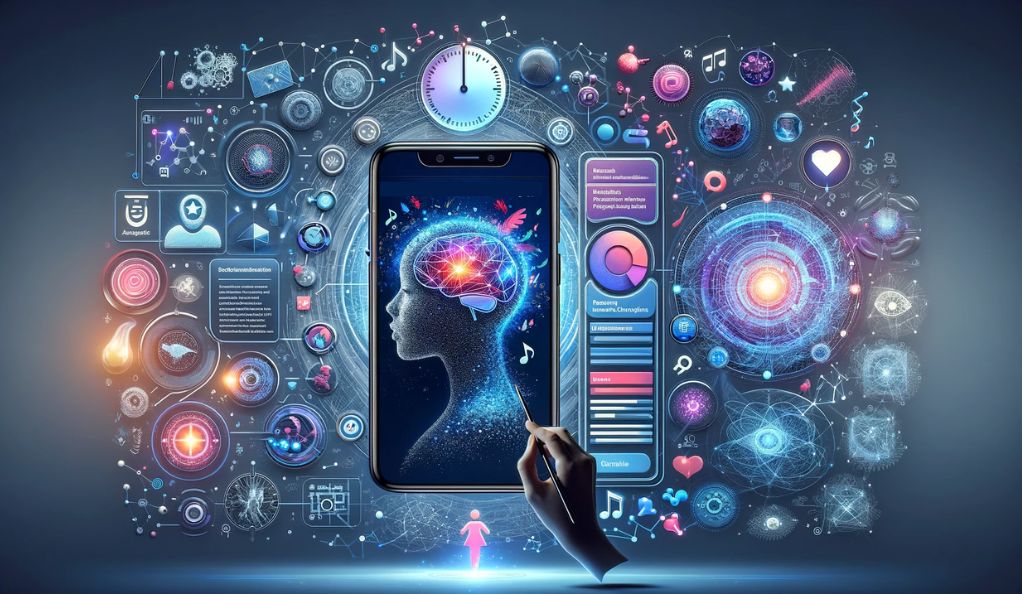
Tailoring User Experience with AI
AI can track user preferences and behaviors to customize the app interface, features, and content in real-time. For example, a news app might use AI to curate a news feed that aligns with a user’s interests, reading habits, and even the times of day they prefer to read.
Dynamic Content and Interface Adaptation
AI-driven apps can dynamically adapt not just content but also user interfaces to suit different contexts and user preferences. This could mean changing navigation layouts, color schemes, or even the app’s functionality based on the user’s current activity or location.
Challenges and Considerations
While AI presents numerous opportunities for enhancing mobile apps, it also brings challenges and considerations that developers and businesses must navigate.
Ethical Considerations in AI
Developers must guide the use of AI in apps with ethical considerations, especially concerning user privacy and data security. They need to ensure the transparency of AI systems in their operations and handle user data responsibly.
Balancing AI Automation with Human Touch
While AI can automate many aspects of mobile app development and user experience, it’s crucial to maintain a balance with the human element. Personal touches and human interactions are still valued by users and can be critical in areas where empathy and understanding are essential.
The Future of AI in Mobile App Development
Emerging trends in AI promise to further revolutionize mobile app development. Technologies like augmented reality (AR), edge computing, and the Internet of Things (IoT) are converging with AI to create even more immersive and intelligent app experiences.
Emerging Trends and Future Predictions
As AI technology continues to advance, we can expect mobile apps to become even more intuitive and capable. The integration of AI with AR and IoT, for example, could lead to apps that not only understand our words and actions but also our environment.
Preparing for an AI-Centric Development Landscape
Developers and businesses must prepare for a future where AI is an integral part of mobile app development. This means investing in the right tools and skills, staying abreast of the latest AI trends, and always considering the user’s needs and expectations.
Conclusion
The integration of AI into mobile app development is not just a trend; it’s a significant shift in how we conceive, build, and interact with mobile technology. AI coding is enabling a new generation of apps that are more intuitive, responsive, and personalized than ever before. As we have explored, the use of AI tools and frameworks, machine learning, natural language processing, and predictive analytics are already making a profound impact on the industry.
The future of mobile app development is one where AI not only enhances the user experience but also streamlines the development process, making it more efficient and effective. The challenges of implementing AI, such as ethical considerations and maintaining a human touch, are significant, but they are not insurmountable. With careful planning and consideration, developers can harness the power of AI to create mobile applications that truly meet the needs of their users.
As we look ahead, the potential for AI in mobile app development is boundless. The technology will continue to evolve, and with it, the capabilities of mobile apps will expand in ways we can only begin to imagine. For developers and businesses, the message is clear: embracing AI is not just about keeping up with the competition; it’s about setting the pace for the future of mobile technology.
AI coding for mobile app development is a game-changer that is reshaping the digital landscape. By embracing AI, developers are not just improving the functionality of their apps; they are creating a more personalized, engaging, and seamless experience for users around the globe.


